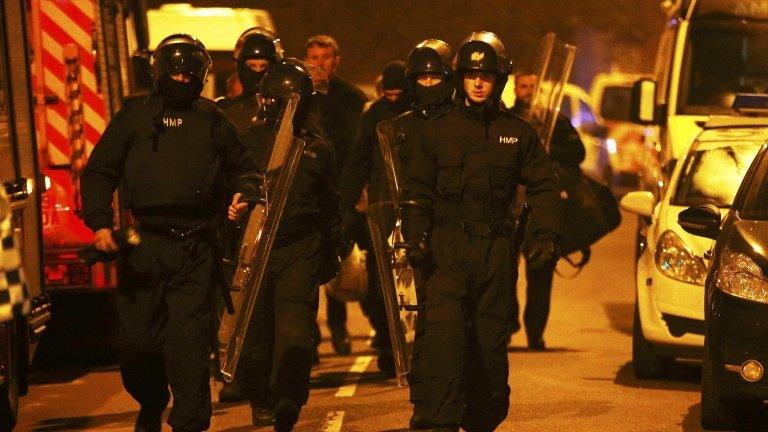HMP Birmingham 'overcrowded, in crisis and run by prisoners'
- Published
Former prison officer Stuart Weddell says he blames the stress of the job for his panic attacks
A prison where six inmates have died this year has been branded overcrowded, chaotic and "controlled by prisoners".
HMP Birmingham was the scene of a huge riot in 2016 involving 600 inmates.
Its monitoring board chairman said some live in inhumane conditions, a senior G4S source told the BBC the firm is in "a state of chaos" and a former officer said the jail manages crisis every day.
G4S has denied the claims saying it accepted there were challenges but it was in control and making improvements.
The Ministry of Justice said of those who have died in the prison this year, two of the deaths were down to natural causes, one was self-inflicted and it is awaiting more information on the remaining three.
But prison charity the Howard League for Penal Reform said the figure was the joint highest in England and Wales this year, along with HMP Durham, and added the figures were "extremely concerning".
Roger Swindells, from the prison's Independent Monitoring Board, cited a number of problems within the jail, including overcrowding, with inmates in the Victorian cells facing cramped conditions with cockroaches and rat infestations.
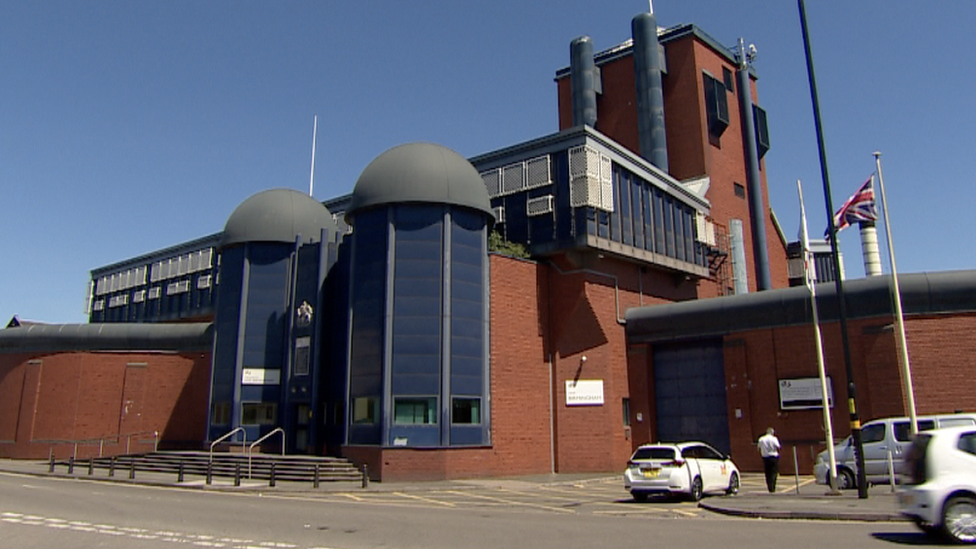
HMP Birmingham, formerly known as Winson Green Prison, has been run by G4S since 2011
He said there was also a high sickness rate among officers and problems with staff retention.
G4S, which currently runs five of the 14 privately run jails in the UK, took over the management of the prison in 2011.
It promised to "continue to invest" in Birmingham, which holds more than 1,400 inmates.

Carl Brookes and Ross Queen were both cleared of prison mutiny but admitted taking a selfie during the riot
But Stuart Weddell, who worked at the jail from 1995 until October 2017, said staffing numbers, including among the most experienced staff, had been cut to unsafe levels since the firm took over.
He said he was dismissed by G4S on health grounds after being diagnosed with severe anxiety disorder and depression, which he said was due to his job.
The 52-year-old, from the West Midlands, who said he considered suicide at one point, added: "It was absolutely horrendous.
"Staff assaults daily, staffing figures had been eroded to terrible levels. Chaotic. Crisis management every day.
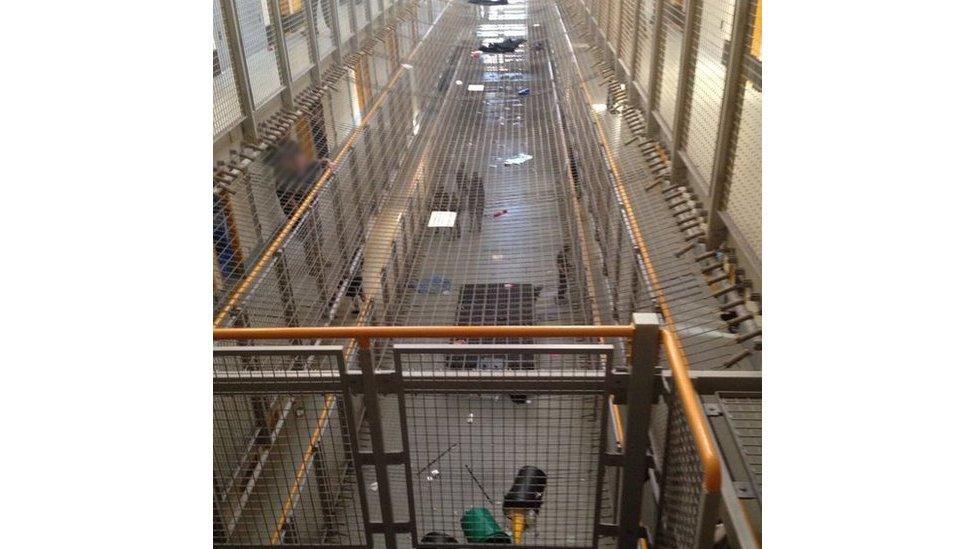
An unverified photo appears to show debris and damage caused during the disturbance
"You didn't really have any control of the prisoners. The prisoners were controlling you. The prisoners were running the jail."
His comments come after a string of incidents at the jail, which have included:
Mr Weddell, who said he was nominated for Prison Officer of the Year in 2013, said the stress of the job led to him deteriorating mentally and having regular anxiety attacks, leaving him now unable to work.
"I would sit in my car for a length of time trying to get myself in the right state of mind to do a day's work.
"I've gone from walking past 200 prisoners out on a wing to not being able to cope in a supermarket."

Analysis - BBC Midlands correspondent Sima Kotecha:
G4S is adamant it's in control of a troublesome prison. However, a senior source at the organisation has told the BBC the company is in "a state of chaos" and that the management is struggling to work out what steps to take to bring order in the jail.
Since the riot 18 months ago, the prison has been in the spotlight and G4S has been trying to fight off criticism. But recent episodes haven't helped its image. In April, inmates at HMP Birmingham live-streamed footage of themselves using mobile phones and smoking what looked like drugs.
The managing director of G4S has repeatedly said the situation at the jail is improving. However, six fatalities this year alone, with a grim image portrayed by the chair of the monitoring board as an overcrowded jail infested with rats, arguably paints a contrasting picture.
The chair of the board does say he believes the prison is going in a positive direction but he eagerly awaits the next inspectorate of prisons' report to see its assessment.

Mr Weddell warned the regular incidents of colleagues being "punched, kicked, spat on", or having faeces thrown at them, could escalate and it was only a matter of time before an officer was more seriously assaulted, or worse.
He said he was still in contact with officers at the jail and feared another riot could happen.
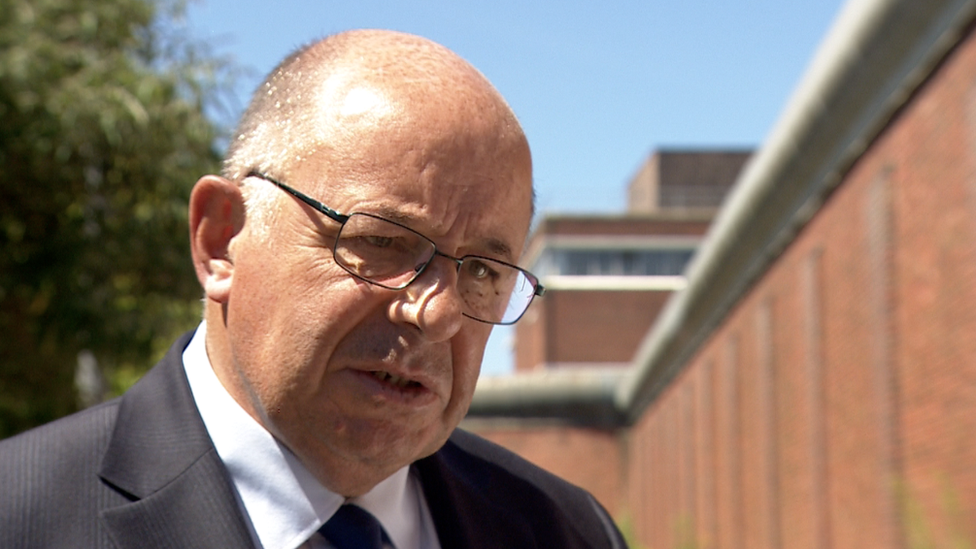
Jerry Petherick from G4S said he would not allow people to live in conditions that were not acceptable
Stolen keys were used to free the hundreds of prisoners from their cells on 16 December 2016, before inmates threw TVs out of windows, built bonfires and used an injured prisoner as "bait" during the disorder.
Ten men were subsequently jailed for their part in the disorder.
But Mr Swindells said the recent appointment of Rob Kellett as the new director at the prison, which he said had been in the top 10 of the most concerning jails for at least the past three years, had led to some positive changes.
"It is a troublesome prison. It has been a troubled prison. It still has a lot of difficulties to face up to… but I am satisfied at the moment those are being tackled," he said.
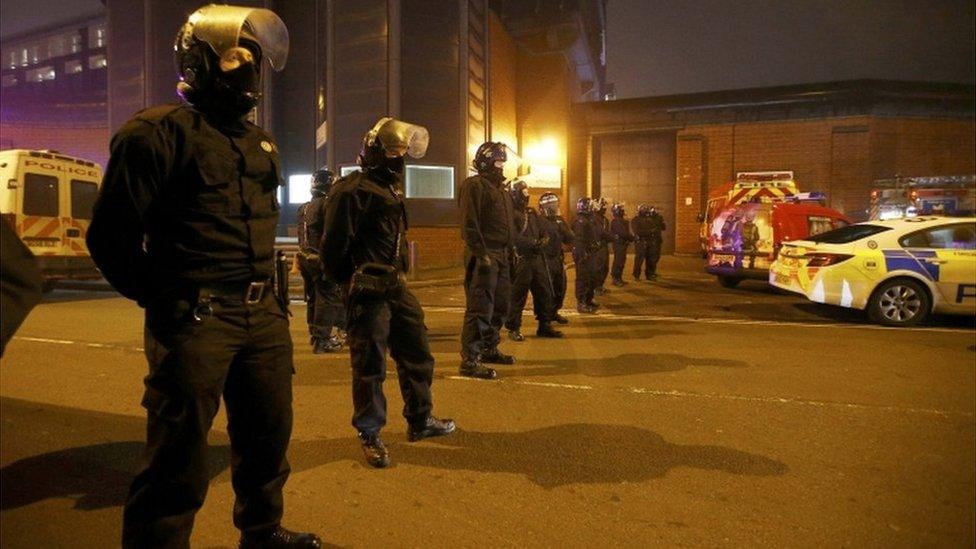
More than 600 prisoners were involved in the riot in 2016
Incidents of violence over the past three months had been reducing, he added.
Mr Petherick said he could not comment on Mr Weddell's claims but said staff were able to access support at the jail if they needed it.
He accepted the prison was still in a recovery phase from the riot, but said the initial rise in staff attrition and sickness rates had now declined, which were good indicators for the running of the category B jail.
He denied there were overcrowding issues, adding: "From time to time, not least because of the age of the buildings, there are issues we have to deal with.
"Let me make it absolutely clear. I'm not going to have people living in conditions that are not acceptable."
But Andrew Neilson, Director of Campaigns at the Howard League for Penal Reform, said Birmingham has been under tremendous strain in recent years,
"While some of Birmingham's problems are systemic, it is notable that this was the first public sector prison to be privatised. Seven years on from that decision, there is little to suggest that privatisation has been successful and much to be deeply concerned about."
- Published28 April 2018
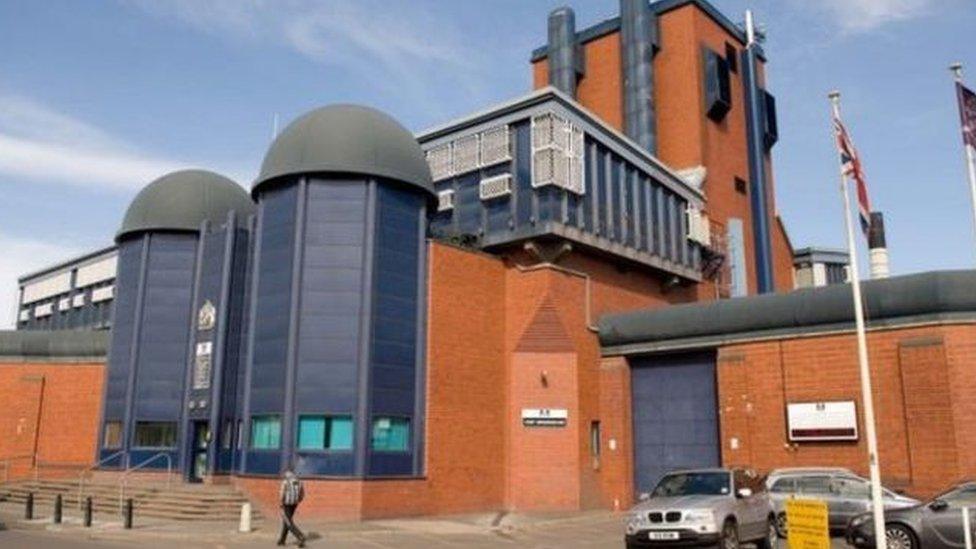
- Published29 September 2017

- Published11 September 2017
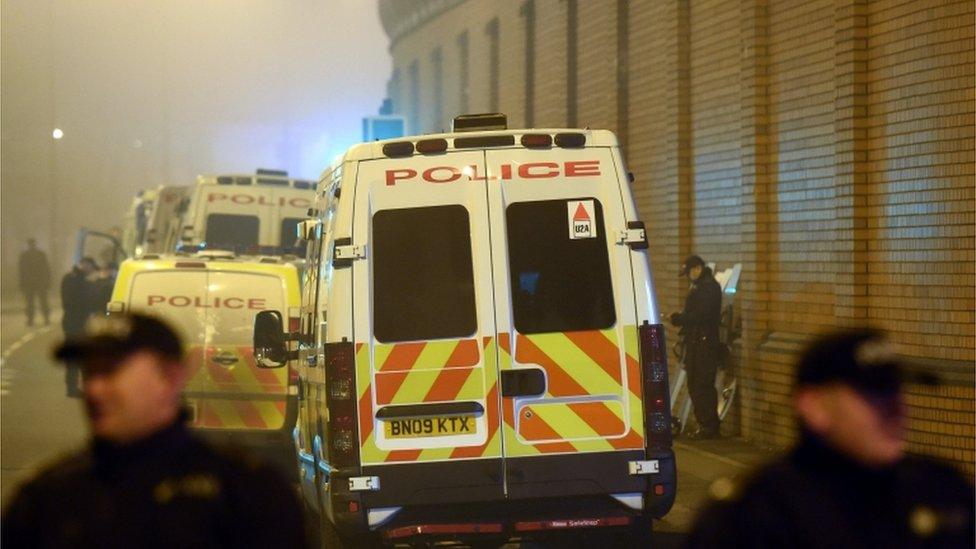
- Published22 December 2016
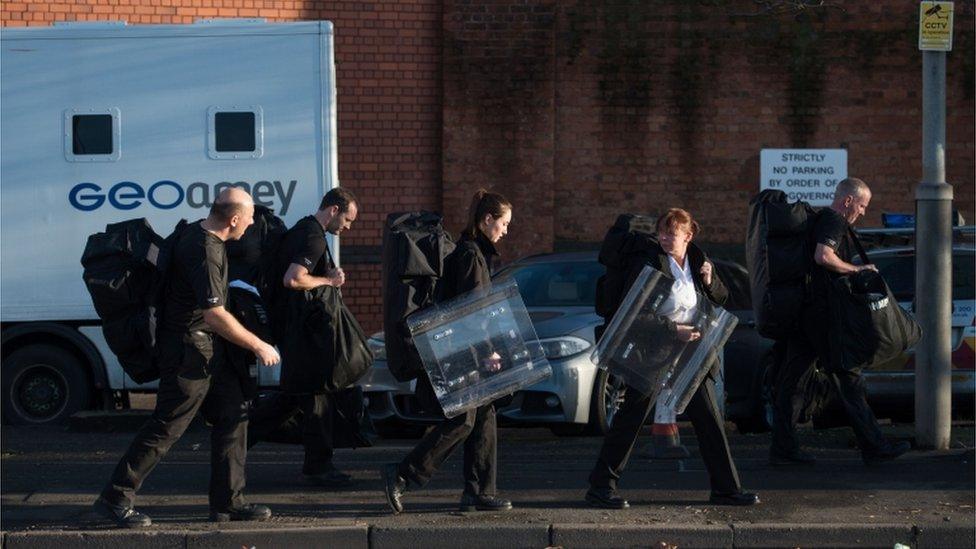
- Published17 December 2016

- Published17 December 2016
